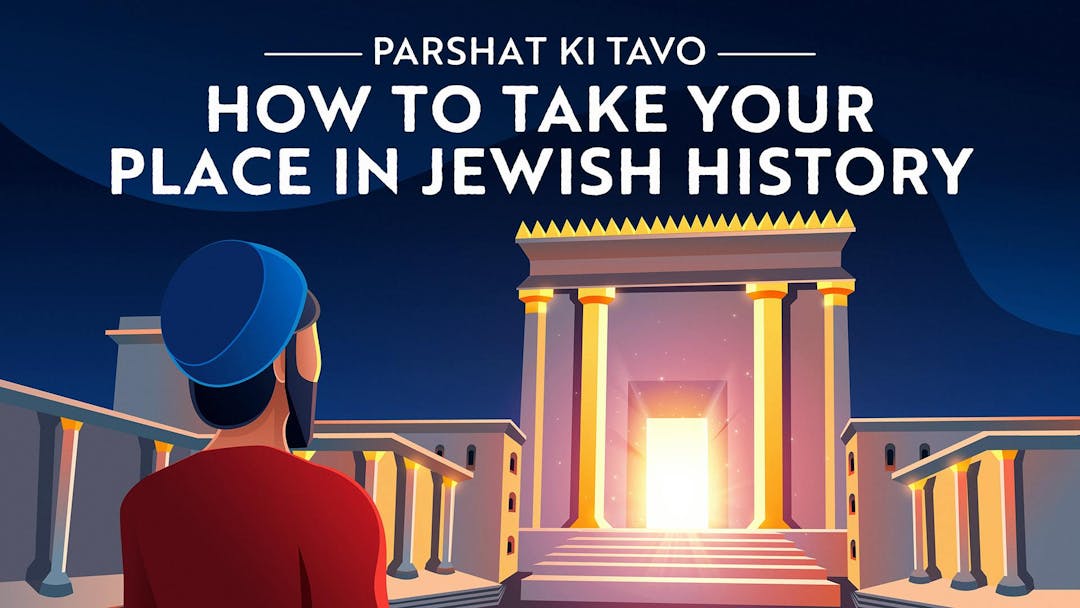Start your free trial today to unlock the full library and enjoy unlimited and uninterrupted access.
Get StartedThe Surprising Origins of Ma'aser (Part 1 of 2)
Where Does Tithing Come From In The Bible?
The children of Israel are on the cusp of entering the land. And once this happens, Moses tells them, they'll have to keep a bunch of new laws - including the law of ma’aser, tithing, and the law of vidui ma’aser, the declaration of ma’aser. But why isn’t it enough to give ma’aser - why does it come with this dramatic statement? Why the spectacle?
There happens to be a story involving ma’aser, a story from much earlier in the Torah. A new look at this story may actually show us the roots of ma'aser, and explain why we make this grand speech.
Want to watch the full video for free?
Enter your email and we’ll send you a link to watch the full series free.
What is Aleph Beta?
Aleph Beta is a unique kind of Torah library. Led by our founder, Rabbi David Fohrman, we are dedicated to high-level, textual Torah learning for adults that is intellectually and spiritually sophisticated, that enlivens your Jewish practice and helps you forge a deeper connection to God. Whether you’ve been learning in yeshiva for years or you’re just beginning your Torah journey, you’re sure to find something meaningful and surprising waiting for you here.
Browse our library of over 1,000 beautifully produced animated videos, podcasts, deep dive courses, and printable guides. Topics include the weekly parsha, Jewish holidays & fast days, laws & mitzvot, prayers, relationships, big philosophical ideas and more. Have something to say at the Shabbos table that will amaze your family and guests and bring deep meaning into their lives.









